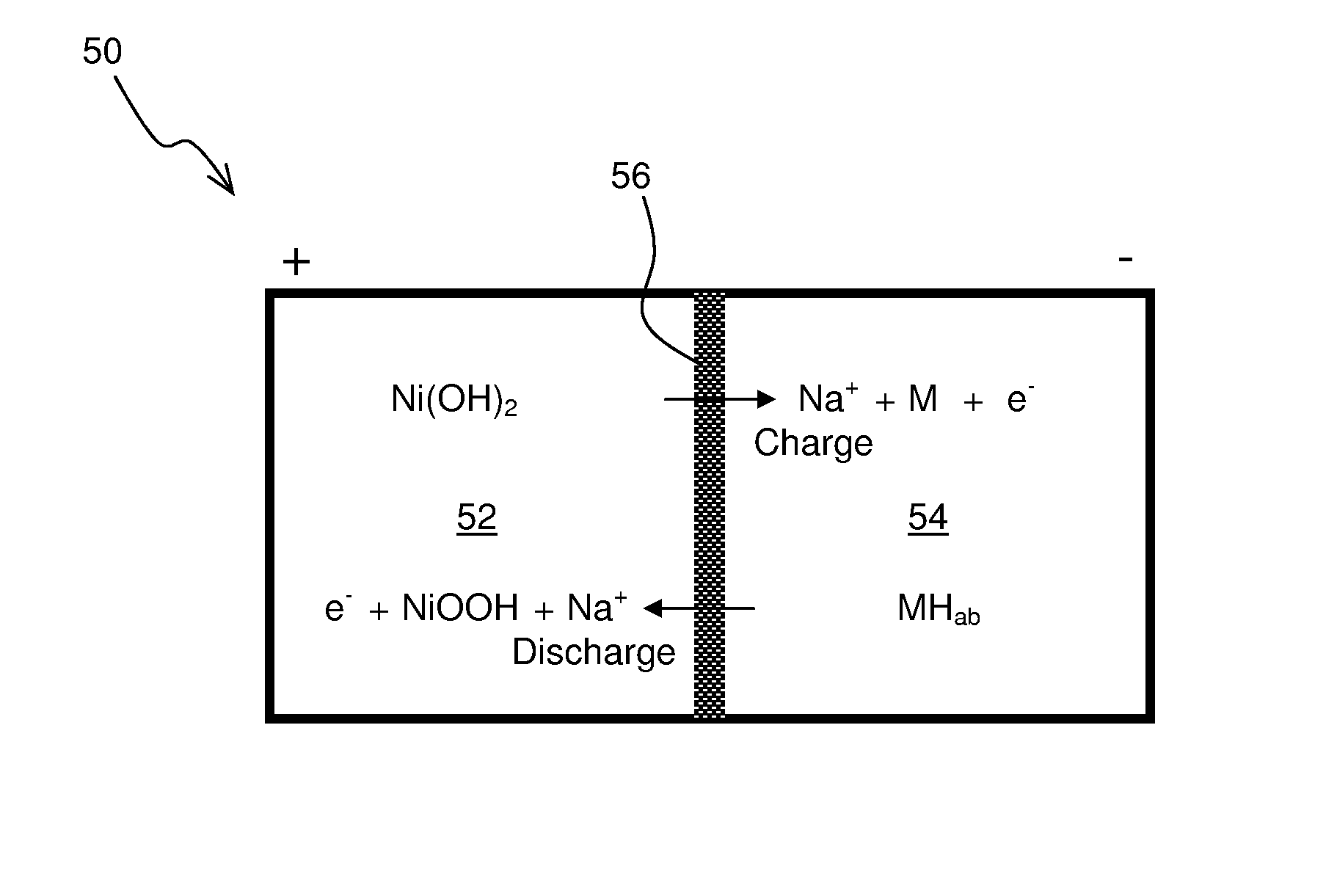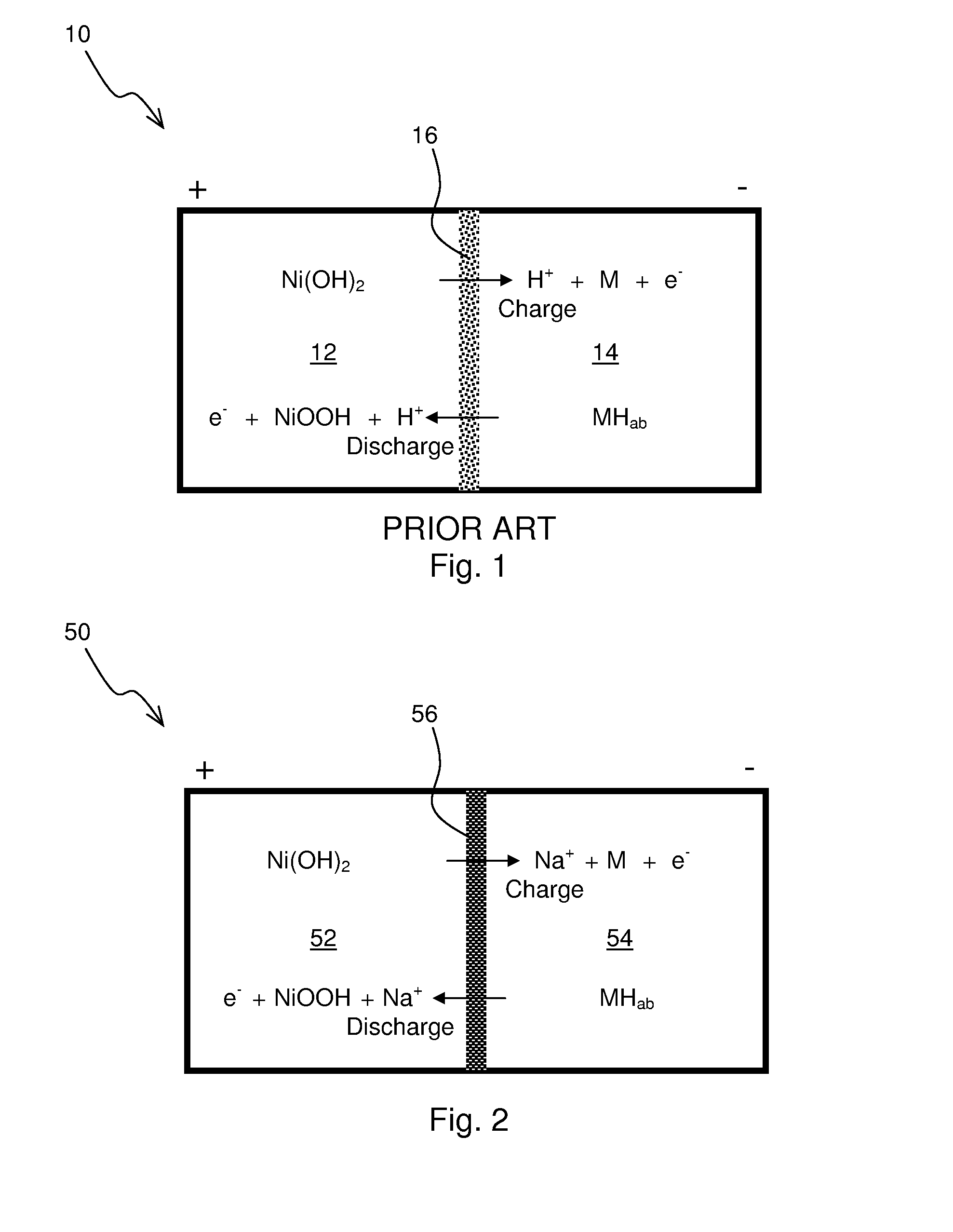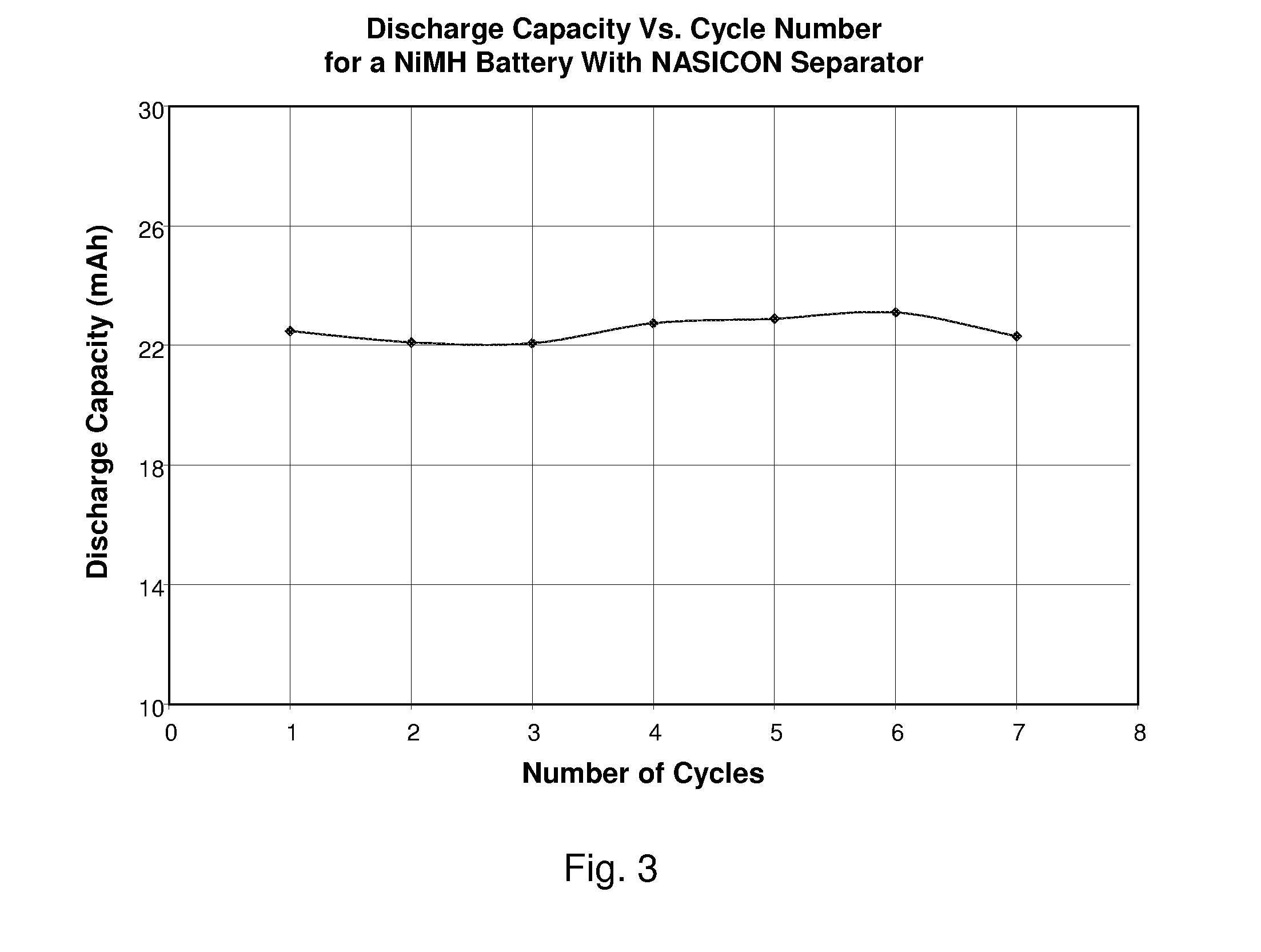Nickel-Metal Hydride Battery Using Alkali Ion Conducting Separator
a technology of alkali ion conducting separator and nickel metal hydride battery, which is applied in the direction of secondary cell servicing/maintenance, cell components, sustainable manufacturing/processing, etc., can solve the problems of less charge than, self-discharge problem associated with nickel metal hydride batteries, and reduce the shelf life of batteries, etc., to achieve the effect of eliminating capacity loss and self-discharg
- Summary
- Abstract
- Description
- Claims
- Application Information
AI Technical Summary
Benefits of technology
Problems solved by technology
Method used
Image
Examples
example 1
Construction and testing of Ni(OH)2—NaSICON-M Battery
[0059]A commercial NiMH battery was discharged and the Ni(OH)2 cathode and metal anode materials were extracted. No attempt was made to determine the composition of the anode material, “M”, but material likely was one suitable for the adsorption of reduced hydrogen in an alkaline environment. The electrode materials were first filter washed with water to remove the potassium hydroxide electrolyte. A 50 wt. % aqueous sodium hydroxide solution was added such that stoichiometric amount of sodium hydroxide was present in the cathode. The sodium hydroxide functions not just an electrolyte but as participant in the cathodic reaction as follows:
Ni(OH)2+NaOH⇄NiOOH+H2O+Na++e−
[0060]The metal anode was also similarly washed with water. A 25 wt. % aqueous sodium hydroxide solution was added such that excess water was present in the anolyte. The water is a participant in the anodic reaction as follows:
M+H2O+Na++e−⇄MH+NaOH
[0061]The present Ni(O...
PUM
 Login to View More
Login to View More Abstract
Description
Claims
Application Information
 Login to View More
Login to View More - R&D
- Intellectual Property
- Life Sciences
- Materials
- Tech Scout
- Unparalleled Data Quality
- Higher Quality Content
- 60% Fewer Hallucinations
Browse by: Latest US Patents, China's latest patents, Technical Efficacy Thesaurus, Application Domain, Technology Topic, Popular Technical Reports.
© 2025 PatSnap. All rights reserved.Legal|Privacy policy|Modern Slavery Act Transparency Statement|Sitemap|About US| Contact US: help@patsnap.com



